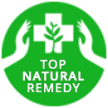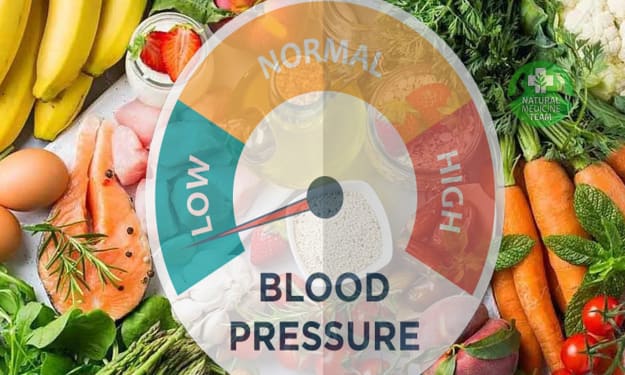7 Essential Vitamins For Healthy Eyes
7 Essential Vitamins For Healthy Eyes

Vitamins are complex organic compounds that are naturally found in plant and animal products and are necessary in small quantities for the proper functioning of metabolic processes in the body. The human body can not synthesize any vitamin (except vitamin D), so it is necessary to get these essential nutrients through the diet for its proper functioning.
Thus, vitamins, but also other micronutrients, such as minerals, antioxidants and other phytochemicals are crucial for the proper functioning of organs and organ systems. For example, a lack of certain micronutrients can lead to an increased risk of eye diseases, such as cataracts, glaucoma, macular degradation, etc.
Here are the most important vitamins, but also additional nutrients, which are key to good eyesight and prevention of most eye diseases, as well as their sources in food.
Vitamin A and beta carotene
Vitamin A is essential for good eyesight. It is a component of the protein rhodopsin, which allows the eyes to see even in low light. According to relevant health institutions, a deficiency of this vitamin leads to night blindness.
Also, this vitamin supports the function of the cornea, which is the protective layer of the eyes. People who are deficient in vitamin A also have a problem with dry eyes.
Beta carotene is the primary source of vitamin A in the human diet. It is provitamin A, ie a pigment that is found in many plants, and when ingested, it is converted into vitamin A.
Studies unequivocally confirm that a diet rich in vitamin A is associated with a reduced risk of cataracts and the most common disease that comes with aging eyes and can lead to complete blindness - macular degradation.
Vitamin E.
Alpha-tocopherol is a form of vitamin E that has many powerful antioxidant properties.
Antioxidant components "fight" free radicals that are constantly produced as metabolic waste. Such free radicals can cause damage or oxidative stress to various parts of the body, including the proteins in the eyes. Such damage can result in the formation of white areas on the lens of the eye, called cataracts.
A 2014 study examined the preventive effect of vitamin E on cataracts. The conclusion was that the lenses were "cleaner" in people who took vitamin E supplements, but that more studies were needed to confirm such results.
Vitamin C.
Vitamin C is also a powerful antioxidant that protects us from oxidative damage.
Oxidative damage is a key factor in two of the most common types of cataracts associated with aging: cortical and nuclear cataracts.
A 2016 study found that people who consumed enough vitamin C had a 33% lower risk of developing cataracts, but also had cleaner lenses, generally.
B vitamins
A 2009 study found that supplementation with a combination of vitamins B6, B9 and B12 could reduce the risk of macular degeneration (a degenerative eye disease that comes with aging and impairs vision, and can lead to its complete loss) in women.
Other studies have shown that this combination of vitamins may reduce the risk of macular degeneration by lowering the levels of homocysteine, a protein that has been linked to inflammatory processes in the eye.
Vitamin B2 (riboflavin) research has also linked it to eye health. As an antioxidant, this vitamin has the potential to reduce oxidative stress in the body and even in the eye tissue.
According to one study, volunteers who used riboflavin in amounts of 1.6-2.2mg per day reduced their risk of cataracts by as much as 30-50% compared with those who took vitamin B2 in amounts up to 1mg per day.
Omega 3 fatty acids
The retina of the eye contains a high concentration of omega 3 fatty acids. These fatty acids help protect the retina from damage and degeneration.
Omega 3 fatty acids reduce the "accumulation" of fat deposits in blood vessels, including retinal blood vessels. Some experts believe that the accumulation of fat in the mentioned blood vessels can lead to macular degradation.
Also, there is some evidence that increased levels of omega-3 fatty acids may reduce the risk of dry eyes.
Lutein and zeaxanthin
Lutein and zeaxanthin are carotenoids found in large quantities in green leafy vegetables.
In the body, they can reach the lens and retina (which helps filter out potentially harmful light wavelengths) from the eye where they act to significantly reduce oxidative stress. Some studies show that about 6mg per day of these powerful antioxidant components significantly reduces the risk of developing macular degeneration.
Zinc
Zinc is a mineral that also helps maintain the health of the retina, cell membranes and protein structures of the eye.
Zinc allows vitamin A to "travel" from the liver to the retina and produce melanin. Melanin is a pigment that protects the eyes from harmful ultraviolet light.
According to the American Optometric Association, zinc supplementation can help patients with macular degeneration or those at risk of developing the disease. According to one study, taking 40-80mg of zinc supplements daily, in combination with certain antioxidants, can slow macular degradation and vision loss by 25% and 19%, respectively.
How to get enough of the listed components?
All of the listed components can be taken in sufficient quantities if we have a healthy, proper and balanced diet. Supplementation is also a good solution, but only in consultation with your doctor because of the individual dosage and possible side effects.
Rich in nutrients:
• Vitamin A - carrots, green leafy vegetables, sweet potatoes, pumpkins, peppers, etc.
• Vitamin E - almonds, sunflower, peanuts, asparagus, avocado, sunflower oil, etc.
• Vitamin C - peppers, citrus fruits, broccoli, berries ( strawberries, raspberries, blackberries, rosehips, blueberries), etc.
• B vitamins - whole grains, nuts, legumes, seeds, etc.
• Omega 3 fatty acids - nuts, chia seeds, fish, flaxseed
• Lutein and zeaxanthin - broccoli, lettuce, corn, peas, prosciutto, spinach, etc.
• Zinc - chickpeas, nuts, pumpkin seeds, whole grains, legumes, etc.
About the Creator
Top Natural Remedy
Natural Remedies, Health Tips, Recipes and more... topnaturalremedy.com >> Nature Is Your Best Medicine ☘️






Comments
There are no comments for this story
Be the first to respond and start the conversation.